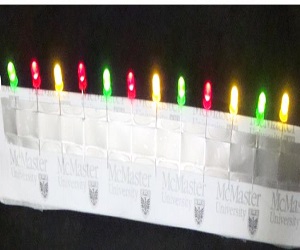
Igor Zhitomirsky
McMaster University, Canada
Title: Colloidal methods for the fabrication of advanced electrodes for electrochemical supercapacitors
Biography
Biography: Igor Zhitomirsky
Abstract
Statement of the Problem: Th e success of the supercapacitor technology will depend largely on the ability to achieve strong electrochemical performance of advanced electrode materials at practically important high active mass loadings and high chargedischarge rates. Th e purpose of this study is the development of advanced composite metal oxide-carbon nanotube and metal oxide graphene electrodes for electrochemical supercapacitors with high active mass loading, high areal and gravimetric capacitances, good cyclic stability and low impedance. Methodology & Theoretical Orientation: The approach is based on the development of new dispersing and capping agents for synthesis and colloidal processing of oxide nanoparticles, new dispersing agents for carbon nanotube and graphene and new techniques for composite design. Findings: Chelating organic molecules with strong polydentate bonding to metal oxide surface were used as capping and dispersing agents with superior control of nanoparticle size and dispersion. Small aromatic molecules and materials from bile acid family allowed excellent dispersion of carbon nanotubes and graphene.

New chelating polymers and chelating polymer complexes with redox properties allowed superior co-dispersion of electrode components and were utilized as advanced redox-active binders for electrodes. Liquid-liquid extraction techniques, extraction strategies and extractors were developed for agglomerate free nanoparticle processing. Electrostatic heterocoagulation techniques were developed for the design of advanced electrodes. Conclusion & Signifi cance: Advanced supercapacitor electrodes were developed with areal capacitance of 8 F cm-2, capacitance retention at high charge-discharge rate above 50%, low impedance, good cyclic stability and high power-energy characteristics.

